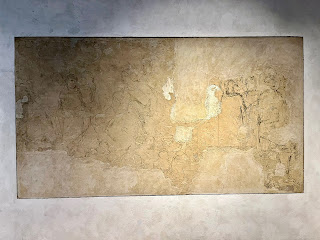Floridi's Open Problems in Philosophy of Information, Ten Years After
Special Issue "What Is Information?"
A special issue of Information (ISSN 2078-2489).
Type of Paper: Article
Title: Floridi's Open Problems in Philosophy of Information, Ten Years After
Authors: Gordana Dodig Crnkovic and Wolfgang Hofkirchner; E-Mails: gordana.dodig-crnkovic@mdh.se; wolfgang.hofkirchner@sbg.ac.at
Abstract: In his article Open Problems in the Philosophy of Information (Metaphilosophy 2004, 35:Issue 4), based on the Herbert A. Simon Lecture in Computing and Philosophy given at Carnegie Mellon University in 2001, Luciano Floridi presented a research programme for the Philosophy of Information in form of the following eighteen open problems: P.1: What is information?; P.2: What are the dynamics of information?; P.3: Is a grand unified theory of information possible?; P.4: How can data acquire their meaning?; P.5: How can meaningful data acquire their truth values?; P.6: Can information explain truth?; P.7: Can information explain meaning?; P.8: Can (forms of) cognition C be fully and satisfactorily analyzed in terms of (forms of) information processing IP at some level of abstraction LoA?; P.9: Can (forms of) natural intelligence NI be fully and satisfactorily analyzed in terms of (forms of) information processing IP at some level of abstraction LoA (Dennett, 1994)?; P.10: Can (forms of) natural intelligence be fully and satisfactorily implemented non-biologically (Turing’s problem)?; P.11: Can an informational approach solve the mind-body problem?; P.12: If information cannot be transcended but can only be checked against further information; if it is information all the way up and all the way down; what does this tell us about our knowledge of the world?; P.13: Should epistemology be based on a theory of information?; P.14: Is science reducible to information modeling?; P.15: What is the ontological status of information?; P.16: Can information be naturalized?; P.17: Can nature be informationalized (Wheeler, 1990)?; P.18: Does computer ethics have a philosophical foundation?; We revisit Floridi’s programme in order to see what happened since then, highlighting some of the major advances, commenting on unsolved problems and rendering the new landscape of the Philosophy of Information emerging at present.
A special issue of Information (ISSN 2078-2489).
Type of Paper: Article
Title: Floridi's Open Problems in Philosophy of Information, Ten Years After
Authors: Gordana Dodig Crnkovic and Wolfgang Hofkirchner; E-Mails: gordana.dodig-crnkovic@mdh.se; wolfgang.hofkirchner@sbg.ac.at
Abstract: In his article Open Problems in the Philosophy of Information (Metaphilosophy 2004, 35:Issue 4), based on the Herbert A. Simon Lecture in Computing and Philosophy given at Carnegie Mellon University in 2001, Luciano Floridi presented a research programme for the Philosophy of Information in form of the following eighteen open problems: P.1: What is information?; P.2: What are the dynamics of information?; P.3: Is a grand unified theory of information possible?; P.4: How can data acquire their meaning?; P.5: How can meaningful data acquire their truth values?; P.6: Can information explain truth?; P.7: Can information explain meaning?; P.8: Can (forms of) cognition C be fully and satisfactorily analyzed in terms of (forms of) information processing IP at some level of abstraction LoA?; P.9: Can (forms of) natural intelligence NI be fully and satisfactorily analyzed in terms of (forms of) information processing IP at some level of abstraction LoA (Dennett, 1994)?; P.10: Can (forms of) natural intelligence be fully and satisfactorily implemented non-biologically (Turing’s problem)?; P.11: Can an informational approach solve the mind-body problem?; P.12: If information cannot be transcended but can only be checked against further information; if it is information all the way up and all the way down; what does this tell us about our knowledge of the world?; P.13: Should epistemology be based on a theory of information?; P.14: Is science reducible to information modeling?; P.15: What is the ontological status of information?; P.16: Can information be naturalized?; P.17: Can nature be informationalized (Wheeler, 1990)?; P.18: Does computer ethics have a philosophical foundation?; We revisit Floridi’s programme in order to see what happened since then, highlighting some of the major advances, commenting on unsolved problems and rendering the new landscape of the Philosophy of Information emerging at present.






Comments
Post a Comment